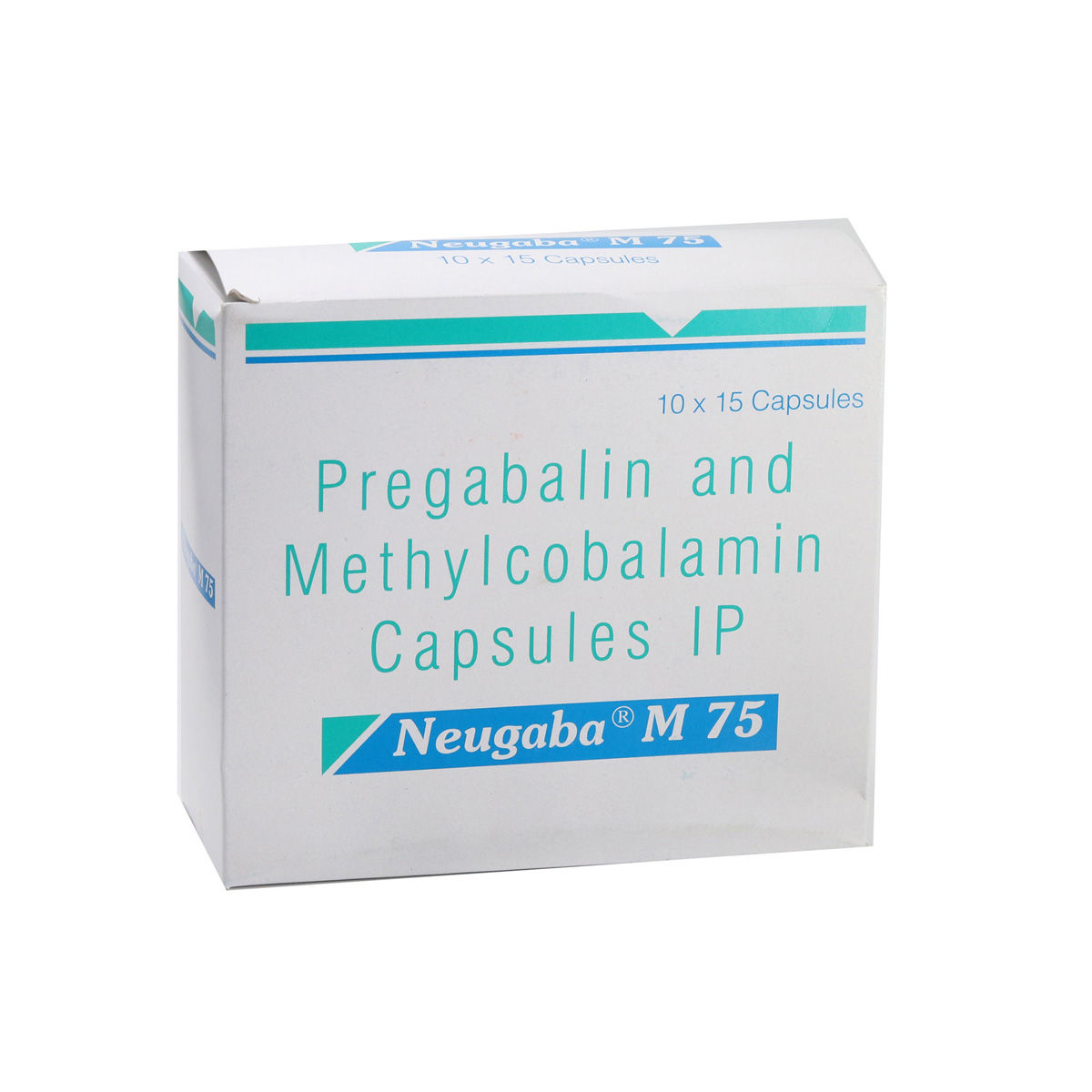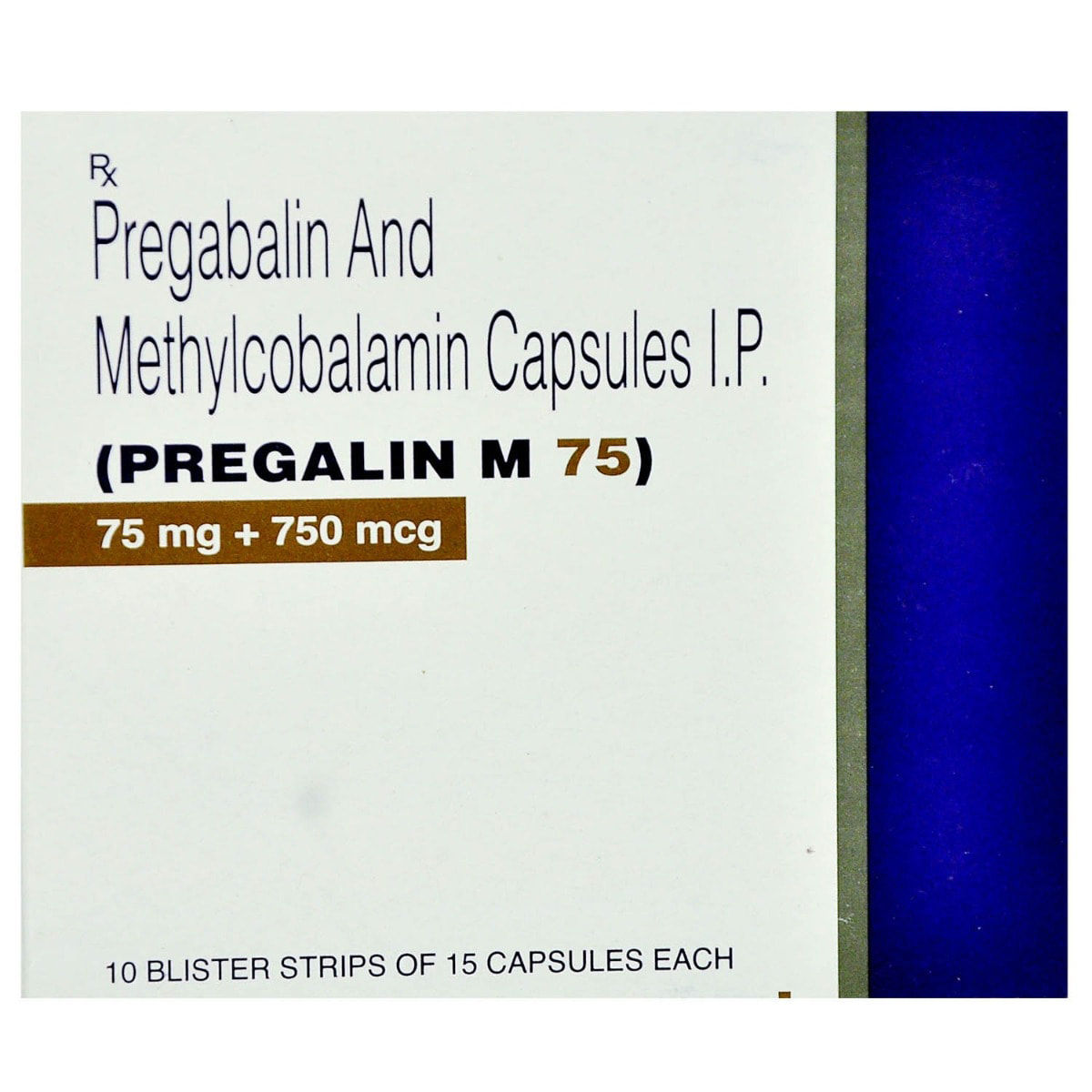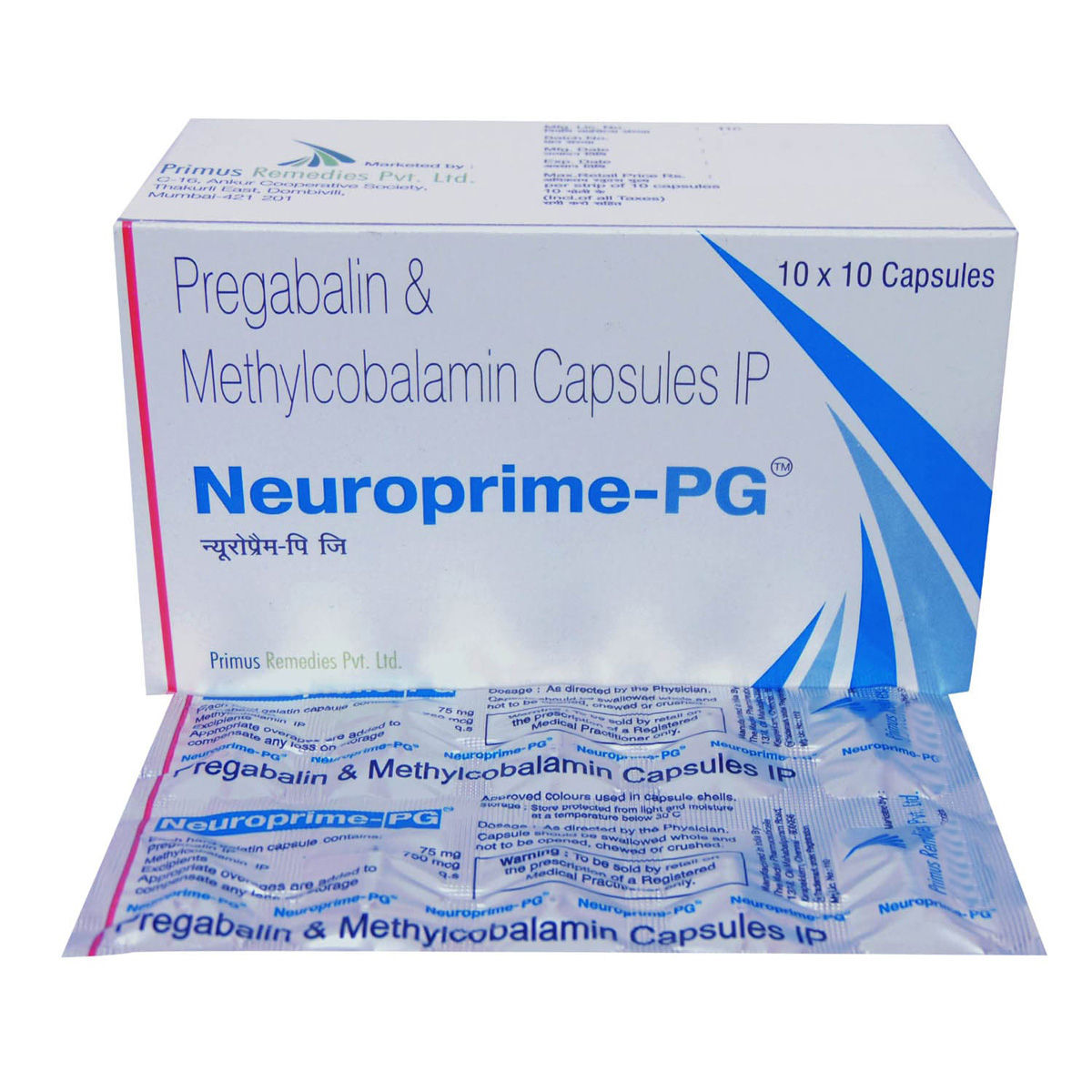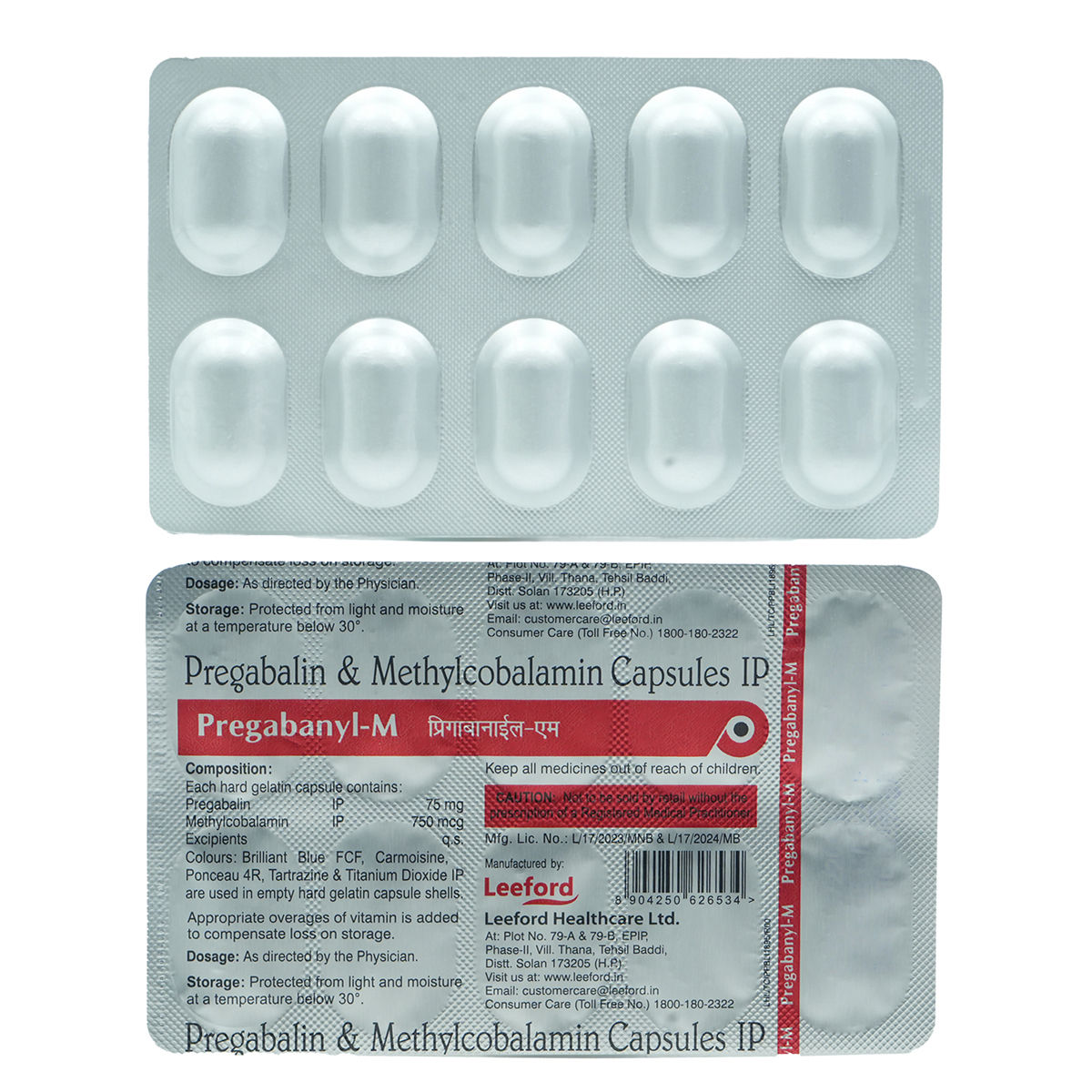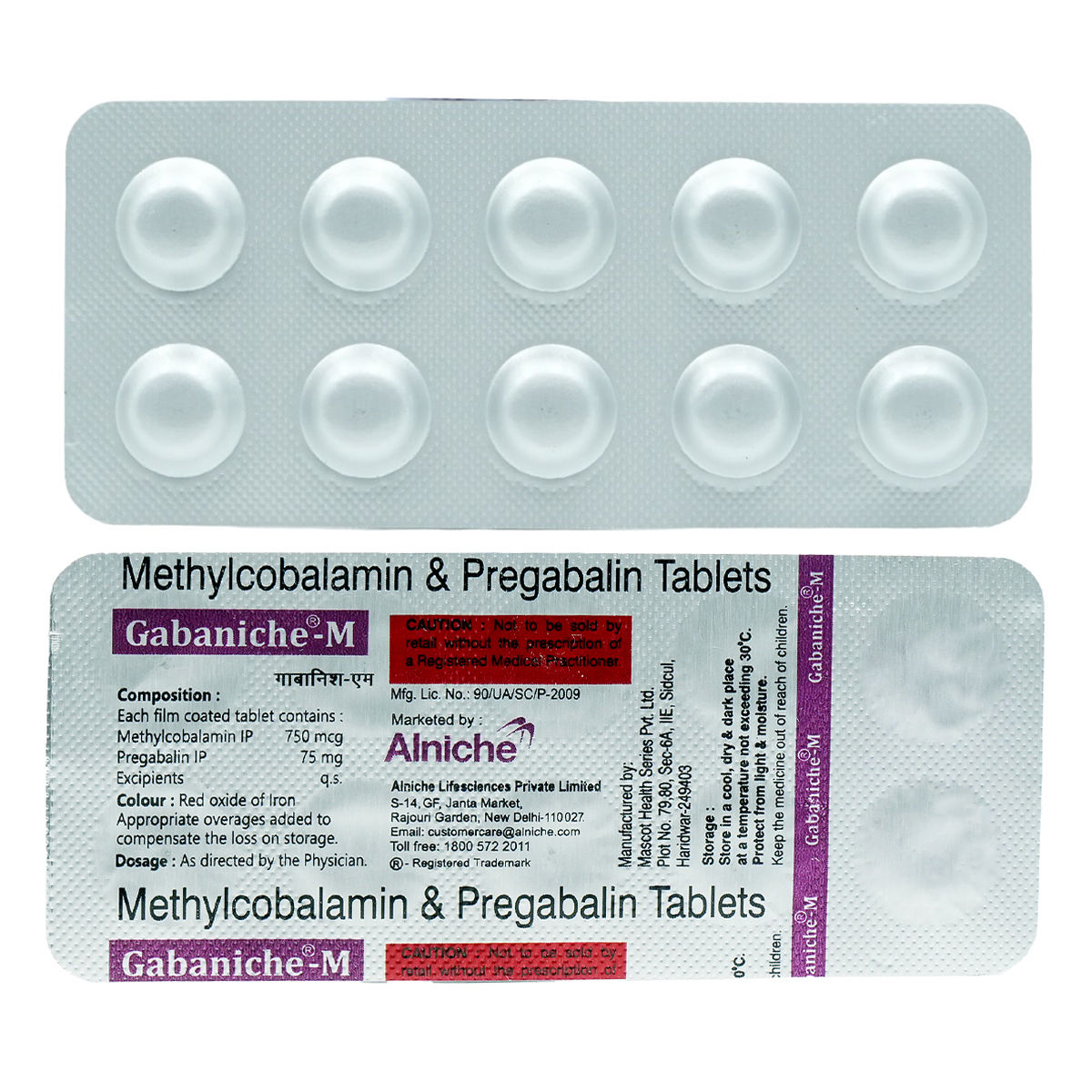NEUROLACE PG TABLET





₹108*
MRP ₹120
10% off
₹102*
MRP ₹120
15% CB
₹18 cashback(15%)
Free Delivery
With Circle membership
(Inclusive of all Taxes)
This offer price is valid on orders above ₹800. Apply coupon PHARMA10/PHARMA18 (excluding restricted items)
NEUROLACE PG TABLET is used in the treatment of neuropathic pain. It contains Pregabalin and Methylcobalamin, which decreases the pain signals and helps rejuvenate and protect damaged nerve cells. It may cause common side effects such as dizziness, drowsiness, headache, loss of appetite, nausea or vomiting, diarrhea, headache, vision problems, and sweating. Before taking this medicine, you should tell your doctor if you are allergic to any of its components or if you are pregnant/breastfeeding, and about all the medications you are taking and pre-existing medical conditions.
Know Your Delivery Time
Provide Delivery Location
Available Offers
 Prescription drug
Prescription drugWhats That

Secure Payment

India's Most Trusted Pharmacy

Genuine Products
Composition :
Manufacturer/Marketer :
Consume Type :
Return Policy :
Expires on or after :
About NEUROLACE PG TABLET
NEUROLACE PG TABLET belongs to the class of medications ‘anticonvulsants’ used in the treatment of neuropathic pain. Neuropathic pain is a chronic (long-term) progressive nerve disease that causes nerve pain due to nerve damage or the nervous system's malfunctioning. It is mostly seen in patients who had suffered a trauma or nerve injury, diabetes, vitamin deficiencies, cancer, multiple sclerosis (disease of the brain and spinal cord), shingles (a viral infection), and HIV.
NEUROLACE PG TABLET is a combination of two medicines: Pregabalin and Methylcobalamin. Pregabalin acts by decreasing the pain signals sent by a damaged nerve in the body. On the other hand, Methylcobalamin helps rejuvenate and protect damaged nerve cells by producing a substance called myelin (outer protective layer of nerve cell - neuron).
You should take this medicine as prescribed by your doctor. The common side-effects of NEUROLACE PG TABLET are dizziness, drowsiness, headache, anorexia (loss of appetite), nausea or vomiting, diarrhea, headache, hot sensation (burning pain), vision problems, and diaphoresis (sweating). Inform your doctor if any of these side effects persist.
Do not take NEUROLACE PG TABLET if you are allergic to ‘Pregabalin’ and ‘Methylcobalamin’ or any contents before taking NEUROLACE PG TABLET if you have a history of heart diseases, liver or kidney disease, alcoholism, or drug abuse. It should not be used in children and adolescents below 18 years. Inform your doctor if you are pregnant and breastfeeding. Do not drive or operate heavy machinery as NEUROLACE PG TABLET may cause dizziness or drowsiness. NEUROLACE PG TABLET contains lactose, so inform your doctor if you have any intolerance to sugars. Do not discontinue treatment without telling your doctor.
Uses of NEUROLACE PG TABLET
•Anxiety Relief: NEUROLACE PG TABLET known is to help reduce anxiety and tension, fostering a sense of calm and relaxation.
•Pain Management: NEUROLACE PG TABLET may provide effective relief from various types of pain, including headaches and muscle discomfort.
•Sleep Aid: NEUROLACE PG TABLET can be beneficial for individuals experiencing sleep disturbances, helping to enhance sleep quality and duration.
•Mood Stabilization: NEUROLACE PG TABLET may assist in managing mood swings and supporting individuals with depressive symptoms, promoting emotional balance.
•Neuropathic Pain Relief: NEUROLACE PG TABLET helps reduce nerve pain by calming overactive nerves and supports nerve repair and regeneration.
Directions for Use
Swallow the medicine as a whole with water; do not crush, break or chew it.
Medicinal Benefits
NEUROLACE PG TABLET is a combination of two drugs: Pregabalin and Methylcobalamin. Pregabalin is an anticonvulsant that affects the brain's chemicals that send pain signals across the nervous system. It works by binding to the specific site on voltage-gated calcium channels (responsible for excitatory response), thereby decreasing brain activity. This effect helps in relieving nerve pain and lowers the risk of seizures. On the other hand, Methylcobalamin is a form of vitamin B12 that helps rejuvenate and protect damaged nerve cells by producing a substance called myelin (outer protective layer of nerve cells). Together, NEUROLACE PG TABLET helps in providing relief from neuropathic pain and improved nerve signal conduction.
How NEUROLACE PG TABLET Works
Storage
Side Effects of NEUROLACE PG TABLET
- Dizziness
- Drowsiness
- Headache
- Anorexia (loss of appetite)
- Nausea or vomiting
- Diarrhea
- Headache
- Sore throat
- Vision problems
- Hot sensation (burning pain)
- Diaphoresis (sweating)
- Weight gain
What if I have taken an overdose of NEUROLACE PG TABLET
Drug Warnings
NEUROLACE PG TABLET may increase the risk of heart failure in patients with heart diseases. It may cause dizziness and somnolence (sleepiness). So, it might increase the risk of accidental injury in elderly patients. NEUROLACE PG TABLET may also cause temporary vision problems. However, if this condition is persistent, consult your doctor immediately. Patients with diabetes who gain weight with NEUROLACE PG TABLET may need a change in diabetic medicines. If you notice decreased urination while taking NEUROLACE PG TABLET, inform your doctor as NEUROLACE PG TABLET may cause kidney failure in some cases. It may increase suicidal tendencies, though it is rare. You may experience convulsions after discontinuing NEUROLACE PG TABLET. In such cases, inform your doctor immediately.
Diet & Lifestyle Advise
Include food rich in vitamin B and D in your diet.
Include cayenne pepper in your diet as it can help in lowering neuropathic pain.
Exercising regularly helps in improving overall health and combating pain.
Rest well, get plenty of sleep.
Try taking a warm bath as it can be soothing.
Avoid smoking and alcohol consumption.
Meditation and yoga can help lower stress, decrease pain sensitivity, and improves coping skills.
Acupuncture can be helpful by stimulating pressure points.
Using essential oils for massages can help increase circulation.
Habit Forming
Therapeutic Class
NEUROLACE PG TABLET Substitute

Neugaba M 75 mg Capsule 15's
by Others
₹19.50per tabletPregeb M 75 Capsule 10's
by Others
₹29.43per tabletPregalin M 75 Capsule 15's
by Others
₹20.88per tabletMaxgalin M 75 Capsule 15's
by Others
₹17.76per tabletPregastar M 75 Capsule 15's
by AYUR
₹21.96per tablet
Product Substitutes
Alcohol
Caution
Alcohol may worsen the condition by increasing the risk of side-effects.
Pregnancy
Unsafe
NEUROLACE PG TABLET is a category C medicine. It is not recommended for use in pregnant women unless the doctor thinks the benefits outweigh the risks.
Breast Feeding
Caution
NEUROLACE PG TABLET should be used with caution in breastfeeding mothers unless the doctor thinks the benefits outweigh the risks.
Driving
Caution
NEUROLACE PG TABLET may cause dizziness and drowsiness. So, avoid driving or operating heavy machinery while using NEUROLACE PG TABLET.
Liver
Caution
NEUROLACE PG TABLET should be used with caution in patients with liver diseases. Dose adjustments may be necessary.
Kidney
Caution
NEUROLACE PG TABLET should be used with caution in patients with kidney diseases. Dose adjustments may be necessary
Children
Unsafe
NEUROLACE PG TABLET is not recommended for anyone below the age of 18 years.
FAQs
NEUROLACE PG TABLET is used in the treatment of neuropathic pain, a chronic (long-term) progressive nerve disease that causes nerve pain due to nerve damage or the nervous system's malfunctioning.
NEUROLACE PG TABLET is a combination of two medicines: Pregabalin and Methylcobalamin. NEUROLACE PG TABLET block the brain's pain signals and protect nerve cells from further damage, thereby improving nerve signal conduction to the whole body parts. These effects help to reduce pain in patients with neuropathic pain.
NEUROLACE PG TABLET should not be given to children and adolescents under the age of 18 years as it may increase suicidal thoughts.
NEUROLACE PG TABLET should not be stopped abruptly as it may cause withdrawal reactions such as trouble sleeping, headache, nausea, feeling anxious, diarrhea, flu-like symptoms, convulsions, nervousness, depression, pain, sweating, and dizziness. NEUROLACE PG TABLET should be stopped gradually over a minimum of 1 week.
NEUROLACE PG TABLET can be used in patients with diabetes if they have neuropathic pain. However, inform your doctor if you notice any weight gain while using NEUROLACE PG TABLET. Your doctor may change your diabetic medicines to stop weight gain. Also, take some measures to control weight such as eating a balanced diet and exercising regularly.
NEUROLACE PG TABLET may cause drowsiness. So, it is advised to refrain from activities such as driving or operating heavy machinery if you feel sleepy after taking NEUROLACE PG TABLET.
You may notice pain improvement within 2-3 days after taking NEUROLACE PG TABLET. However, it may take 2-3 months for your symptoms to improve depending on your health condition.
NEUROLACE PG TABLET may increase your appetite, which might make you eat more, and thus increases the risk of weight gain. However, it’s easier to prevent weight gain than losing the weight. Try to eat a healthy balanced diet. Avoid consuming high-calorie foods, such as soft drinks, chips, oily food, biscuits, cakes, and sweets. If you feel hungry between meals, do not eat junk food, instead eat vegetables, fruits, and low-calorie foods. Regular exercise helps to prevent weight gain. If you still have any concerns, discuss with your doctor.
NEUROLACE PG TABLET may rarely cause serious side effects such as allergic reaction, suicidal thoughts or swelling of limbs (legs, hands, or feet). If you experience any signs of these side effects, discontinue NEUROLACE PG TABLET and consult your doctor. Signs of an allergic reaction include swelling of your face, lips, mouth, tongue, gums, and neck. Allergic reactions can also lead to skin rash, difficulty breathing, hives (raised bumps) or blisters. Watch out for any changes, especially sudden changes in behaviors, mood, thoughts or feelings, or if you have suicidal thoughts.
NEUROLACE PG TABLET may show an initial benefit after 2 weeks of taking it. However, for full benefits, it may take around 2 to 3 months or more (in some patients).
If you forget to take a dose of NEUROLACE PG TABLET, take it as soon as you remember. But, if it is time for your next dose, skip the missed dose and take your regular dose. Do not take a double dose to make up for a forgotten dose.
No, taking a higher than the recommended dose may not be more effective, rather it may increase the risk of toxicity and serious side effects. If your symptoms are not relieved or there is an increased severity of your symptoms after using the recommended doses, please consult your doctor.
You are advised to avoid alcohol consumption while taking NEUROLACE PG TABLET as it may increase the risk of side effects. However, if you have any concerns, please discuss with your doctor.
If you have started taking NEUROLACE PG TABLET, you may need to see your doctor regularly. However, if the recommended doses does not improve your symptoms or if the side effects persist or worsen which affect your routine activities, consult your doctor.
Store NEUROLACE PG TABLET at room temperature in a cool place. Protect from light and moisture. Keep it out of reach of children.
The side effects of NEUROLACE PG TABLET include nausea, vomiting, headache, dizziness, drowsiness, increased appetite, weight gain and vision problems. If these side effects persist or worsen, please consult your doctor.
You are recommended to take NEUROLACE PG TABLET only if it is advised by your doctor. Therefore, if you are pregnant or planning pregnancy, take your doctor’s advice.
You are recommended to avoid driving or using any tools or machines until you know how NEUROLACE PG TABLET affects you as it may cause dizziness or drowsiness in some people.
Country of origin
Manufacturer/Marketer address
Disclaimer
Author Details
We provide you with authentic, trustworthy and relevant information






